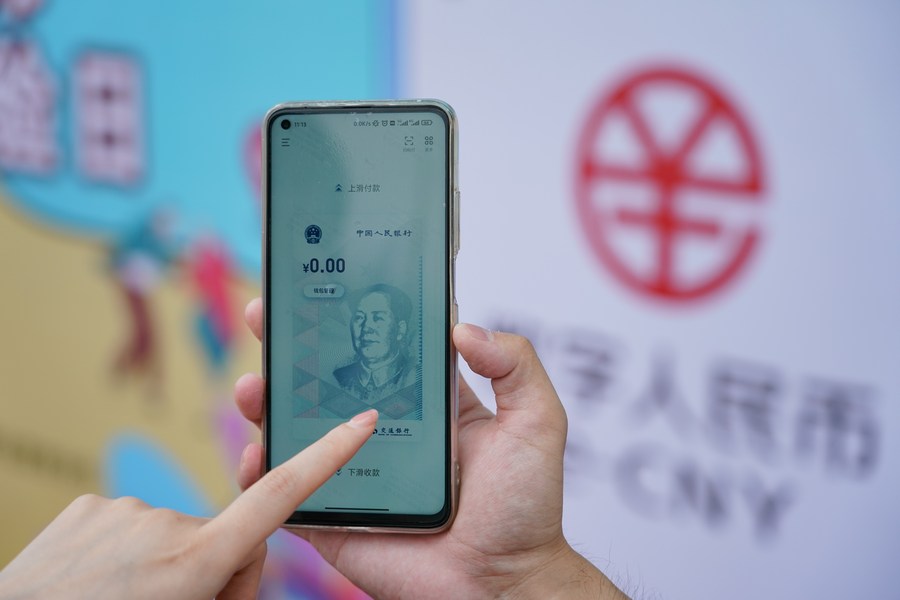
Banco Popular da China has announced the creation of an international operations center for Yuan Digital, with the objective of expanding the global range of Chinese currency. The announcement was made on Wednesday, 18, by the governor of the institution, Pan Gongsheng, during the Lujiazui Forum, held in Shanghai.
The initiative is part of a package with eight financial policies aimed at strengthening Renminbi’s international position and turning Shanghai into a global finance hub. The plan also provides tests with structural monetary policy instruments and the adoption of new technologies in the national banking system.
“The traditional transionic payment system is having increasingly visible problems, and there is a need to reduce the dependence on a single currency,” Pan said.
“There is a growing global appeal for improvements, and new payment infrastructures and settlement methods are emerging, which is boosting the global system towards greater efficiency, safety, inclusion and diversity – a trend that will only strengthen in the future.”
According to Pan, China has developed over ten years a network of Renminbi -based transfrontic compensation with multiple channels and international coverage. Yuan’s internationalization proposal occurs in a context of commercial and technological tensions with the United States, which expanded the pressure on Beijing to diversify their financial and monetary options.
The new structure will include refinancing tests for Foreign Trade Companies, Reduction Schemes for Transfronics Transactions and an expanded Green Financing Program. The latter will expand the carbon reduction support tool, incorporating specific regional sectors and energy transition projects.
The city of Shanghai will be used as a test platform for new structural tools, such as the use of blockchain in commercial financing operations and the issuance of innovation titles. There will also be support for private companies in issuing papers linked to technological innovation, with risk sharing mechanisms.
The Central Bank also announced the creation of a commercial report repository aimed at the interbank market.
The system will gather high frequency transactions data from segments such as securities, derivatives, monetary markets, gold and commercial role, with the purpose of subsidizing financial institutions and guiding macroeconomic policies and regulatory decisions.
A new personal credit agency will be created to expand the offer of personalized products to the financial sector. The measure is part of the strategy of strengthening social credit infrastructure in the country, Pan said.
During his speech, the governor of the Popular Bank of China also requested renovations in international financial bodies. He cited the absence of significant change in voting rights and the governance structure of institutions such as the International Monetary Fund (IMF) and the World Bank.
“Despite changes in the overall economic scenario, the actions and voting rights of major international financial organizations, such as the International Monetary Fund and the World Bank… have long been under substantial adjustments,” Pan said. “The participation of emerging markets and developing countries is significantly lower than their actual position in the global economy.”
China currently has 6.4% of the IMF votes, even though it is the second largest economy in the world. Beijing has been pressured for a reformulation in the multilateral system and for greater representativeness in the decisions of these institutions.
Pan also addressed Special Sweating Rights (SDR), an International IMF reserve asset. According to him, the lack of global consensus prevents the SDR from assuming a relevant role as an instrument of exchange in the international monetary system. “More efforts are needed to promote the use of SDR, despite the challenging global environment,” he said.
In his assessment, the current system based on the predominance of a sovereign currency is a potential risk in international conflict scenarios.
“In the future, the international monetary system will probably continue its evolution towards a system in which some sovereign coins coexist and compete with brakes and balances,” he said. He added that currencies should reinforce internal tax discipline and improve financial regulation, as well as advance structural reforms.
PAN’s proposals indicate the intensification of Chinese strategy to reduce exposure to the US dollar and to consolidate financial settlement alternatives between global southern countries. The expectation of the Chinese government is that Yuan Digital, coupled with a new international payment architecture, expand Beijing’s influence on global business transactions.
The Lujiazui Forum, held annually in Shanghai, brings together financial leaders, central banks representatives and economic authorities to discuss monetary policies and financial development strategies. The announcement made during the event reflects China’s intention to assume more active role in defining future structures of the global financial system.
With information from SCMP
Source: https://www.ocafezinho.com/2025/06/18/china-anuncia-centro-global-do-yuan-e-propoe-novo-desenho-para-o-sistema-financeiro-global/

